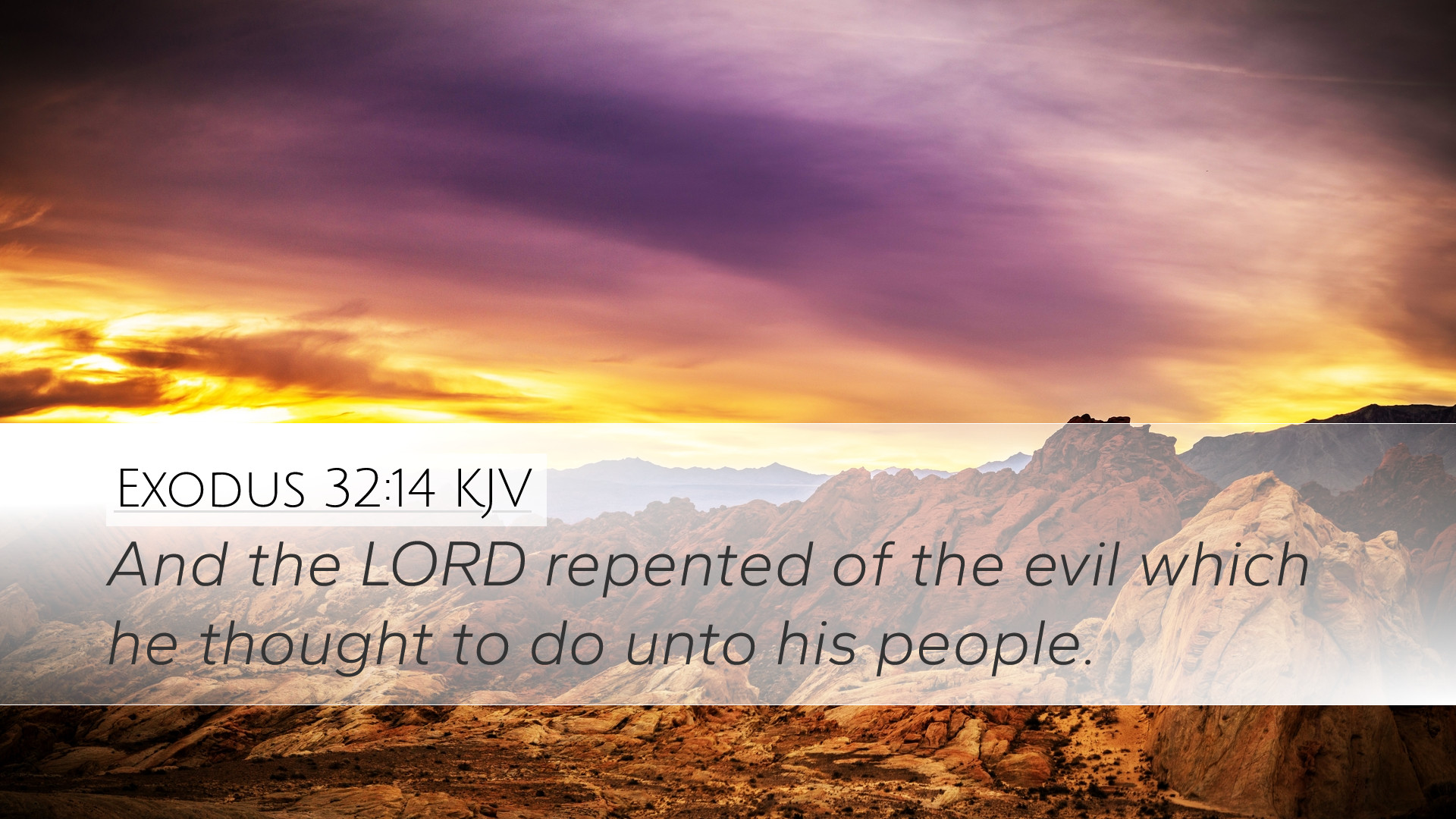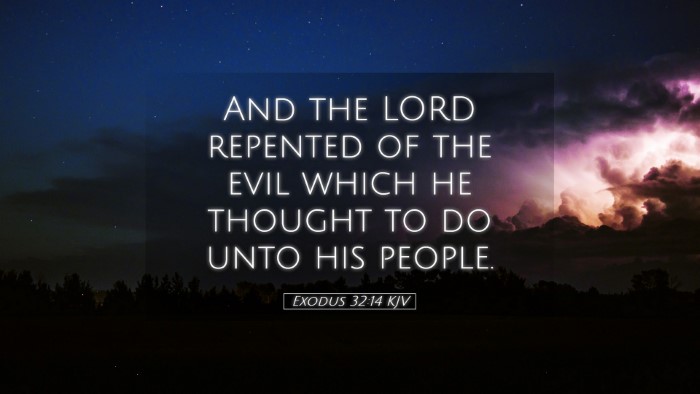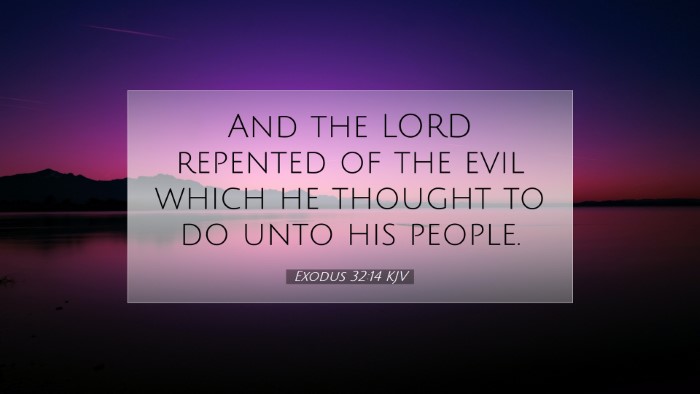Commentary on Exodus 32:14
Verse Text: Exodus 32:14 (KJV)
“And the Lord repented of the evil which he thought to do unto his people.”
Introduction
This verse presents a profound theological insight into the nature of God’s relationship with humanity. It raises questions about God's sovereignty, His emotional engagement with His people, and the nature of repentance. This commentary will draw from insights provided by esteemed public domain commentaries, elucidating the complexities and implications of this significant biblical text.
The Context of Exodus 32
The chapter narrates the incident of the golden calf, where Israel, in the absence of Moses, turns to idolatry. This act provokes God’s anger, leading Him to threaten their destruction. The context for understanding Exodus 32:14 is crucial, as it highlights the serious ramifications of Israel's sin and God’s initial response to that sin.
Commentary Insights
God's Anger and Intent of Destruction
Both Matthew Henry and Albert Barnes emphasize that God's anger is justifiable given the grievous nature of Israel’s sin. Henry notes that the people’s actions were both a violation of their covenant and a direct affront to God’s holiness. Barnes reinforces this by stating that the people had "corrupted themselves" and turned away to idol worship, provoking God’s anger.
The Nature of Repentance
The term "repented" in this context has sparked extensive discussion among theologians. Adam Clarke explains that while God does not change in His essential nature or purpose, this verse illustrates His willingness to respond to the intercession of Moses. It reflects a relational dynamic between God and humanity, where God acts upon the petitions of His faithful servants.
Theological Implications
- God’s Sovereignty: Despite God's initial declaration, His change in action demonstrates that He retains sovereignty over the covenant relationship, capable of mercy.
- Intercessory Prayer: The response of God to Moses' intercession highlights the power of prayer. As Henry notes, Moses pleads with God to remember His promises, indicating that advocacy before God can influence divine decisions.
- Relational Dynamics: This incident showcases God's desire for relationship and dialogue with His people. It challenges the notion of a distant deity, instead presenting a God who is involved and responsive.
God's Character: Justice and Mercy
The dual nature of God as both just and merciful is exemplified here. Clarke asserts that God’s compassion prevails even in the face of disobedience. This verse reinforces the biblical theme of God’s readiness to forgive when His people genuinely turn back to Him. Barnes highlights that God's mercy triumphs over judgment when He sees the repentance of His people.
Application for Believers
This passage carries vital lessons for contemporary believers:
- The Importance of Holiness: The grave consequences of sin remind us of the seriousness of our covenant with God.
- The Role of Prayer: Like Moses, believers are encouraged to intercede for others, trusting in God’s responsiveness.
- Assurance of God’s Mercy: This verse assures believers that no matter how grievous sin may be, sincere repentance leads to God's mercy.
Conclusion
Exodus 32:14 holds profound theological truths that are essential for pastors, students, theologians, and scholars. Through this exploration, it is clear that God's character encompasses both justice and mercy. As we reflect on the implications of this verse, may we grow in our understanding of how to engage with God through prayer and repentance, embodying the relational dynamics that God desires with His people.


